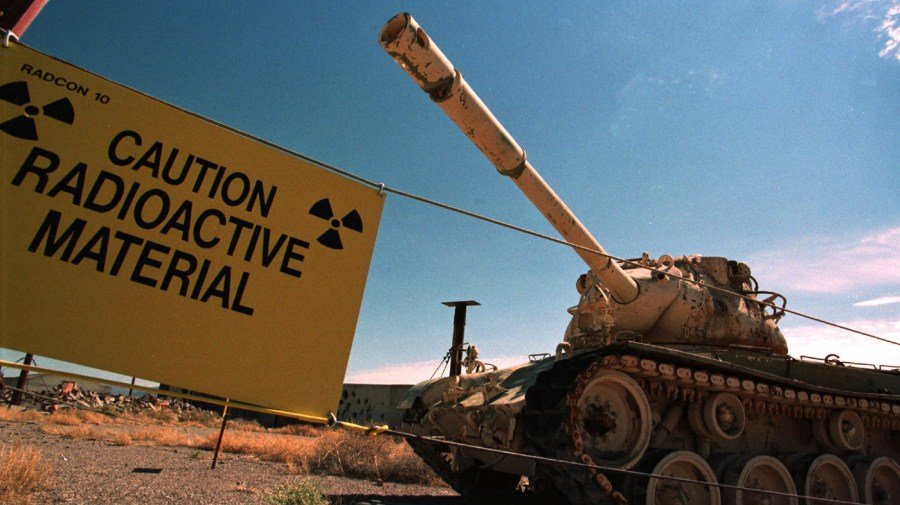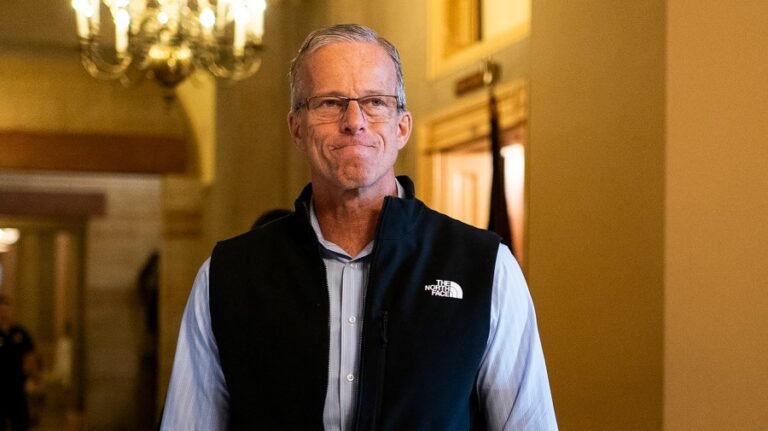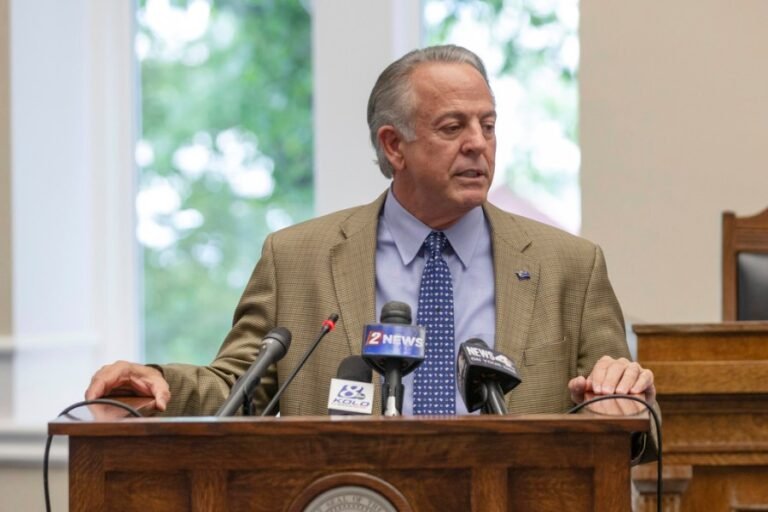
President Trump’s call to resume nuclear tests was muddied this week when Energy Secretary Chris Wright said the United States would not resume explosive testing, which was last conducted in the 1990s.
“I think the tests we’re talking about right now are system tests. These are not nuclear explosions. These are what we call noncritical explosions,” Wright told Fox News on Sunday.
That didn’t square with Trump’s own remarks to CBS’s “60 Minutes,” which also aired over the weekend, in which he alleged that other countries were conducting secret underground nuclear testing and said the U.S. would do the same.
“Are you saying that after more than 30 years, the United States is going to start detonating nuclear weapons for testing?” Norah O’Donnell asked Trump.
“I’m saying that we’re going to test nuclear weapons like other countries do, yes,” Trump responded, naming Russia, China, North Korea and Pakistan.
There’s no public evidence that any foreign nations have conducted explosive nuclear testing since North Korea’s last known test in 2017. There have been accusations that Russia and China have carried out secret, low-yield nuclear tests, which CIA Director John Ratcliffe suggested is what Trump was referring to in his remarks.
But what Trump is proposing would appear to be full-yield tests like the hundreds carried out at the Nevada Test Site throughout the Cold War, and which only North Korea has conducted since the 1990s.
That has put a spotlight on the debate over whether the U.S. should maintain the status quo or seek to flex its nuclear muscle by reviving the Nevada testing grounds.
Robert O’Brien, Trump’s national security adviser in his first term, penned an article for Foreign Affairs last year arguing for a resumption of testing and the production of nuclear materials if Russia and China refuse to engage in arms control talks.
“The United States has to maintain technical and numerical superiority to the combined Chinese and Russian nuclear stockpiles. To do so, Washington must test new nuclear weapons for reliability and safety in the real world for the first time since 1992 — not just by using computer models,” he wrote.
Daryl Kimball, executive director of the Arms Control Association, has been a leading voice against the resumption of testing, warning it will give a green light to other nuclear powers.
“We would see a chain reaction of nuclear testing, which would benefit other nuclear-armed states far more than the United States, because they have less experience with nuclear weapons design, nuclear testing,” Kimball told The Hill.
He pushed back on the suggestion that real-world testing was needed to ensure that the U.S. nuclear arsenal works. “That is a misconception that is only uttered by people, like [Vice President] JD Vance, who don’t understand how the U.S. nuclear arsenal is maintained over time.”
Vance last week defended Trump’s initial social media post calling for nuclear testing.
“It’s an important part of American national security to make sure that this nuclear arsenal we have actually functions properly,” Vance told reporters. “To be clear, we know that it does work properly, but you got to keep on top of it over time, and the president just wants to make sure that we do that.”
The White House did not address specific questions for this article, referring back to Trump’s public remarks. The Department of Energy did not respond to a request for comment.
Bob Peters, senior research fellow for strategic deterrence at the Heritage Foundation, echoed Vance and O’Brien, comparing America’s nuclear arsenal to a 1975 Cadillac that’s never been driven. He also argued the president should have nuclear testing in his set of foreign policy tools, whether or not he ultimately decides to use it.
Such tests, he said, would allow a president to send the message that an adversary is “getting very close to a threshold for me personally, in which I may feel compelled to employ nuclear weapons … and to get your attention, I’m going to shake the Nevada desert.”
“And I don’t know what crisis that would be that would compel the president to go down that route. But again, given how many states have completely modernized their nuclear arsenal, they clearly put real value in these capabilities. You want some type of symmetric response that the president could employ to get us out of that crisis,” Peters added.
Trump’s suggestion of resuming nuclear tests has already prompted Russian President Vladimir Putin to respond in kind. Speaking at a meeting with his security council, Putin on Wednesday said Moscow will only restart nuclear tests if the U.S. does so first, but he directed officials to analyze Washington’s intentions and work out proposals for resuming nuclear weapons tests.
Trump’s threats followed Moscow’s high-profile tests of nuclear-capable weapons systems, though those tests did not involve nuclear explosions.
China denied Trump’s claims that it had conducted nuclear tests and called on the U.S. to “take concrete actions to safeguard the international nuclear disarmament and non-proliferation regime and maintain global strategic balance and stability.”
Pakistan also denied Trump’s allegation, with a senior official telling CBS News, “Pakistan was not the first to carry out nuclear tests and will not be the first to resume nuclear tests.”
Kimball said foreign countries have been reaching out over the past week, trying to make sense of Trump’s threats and preparing a response. He cautioned that Trump would likely face hurdles if he presses ahead.
“The President alone cannot order the resumption of testing overnight. This requires time, hundreds of millions of dollars, it requires engineering, physicists, it requires people to make this happen,” Kimball said.
Congress could move to block Trump or withhold the funds for building the underground shaft and other infrastructure needed for nuclear testing. Nevada may also file lawsuits seeking to halt the tests on environmental grounds, Kimball noted.
Nevada Democrats are already raising alarm over Trump’s intentions.
“We write to express our outrage and unequivocal opposition to President Trump’s reckless directive to resume explosive nuclear weapons testing and to demand clarification,” members of Nevada’s congressional delegation wrote to the administration in a Monday letter.
“to even contemplate detonating nuclear weapons on American soil is a betrayal of science, safety, and the American people,” they added.
Peters at the Heritage Foundation said he took such concerns seriously and was not excited about the possibility of nuclear testing. But he said it must be an option. As it stands, it would optimistically take two to three years to prepare a site and carry out underground tests, he estimates.
Facing nuclear provocations from North Korea and Russia, as well as China’s rapid buildup of its arsenal, Peters said, “We should be concerned and taking the steps that are necessary to carry out a nuclear test in relatively short order, which is measured in months, not years.”


